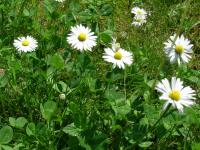adv. On horseback. [ 1913 Webster ]
Two suspicious fellows ahorseback. Smollet. [ 1913 Webster ]
n.
n. (Arch.) A board, or other woodwork, carried round the walls of a room and touching the floor, to form a base and protect the plastering; -- also called washboard (in England), mopboard, and scrubboard. [ 1913 Webster ]
a.
n. a book in which detailed written records of cases are kept and which are a source of information for subsequent work. Such books are often used as supplements to texts in law schools. [ WordNet 1.5 +PJC ]
n. a board on which cheeses are served.
n. a hamburger with melted cheese on it. [ WordNet 1.5 ]
n. (Eccl. Hist.) A follower of Eusebius, bishop of Cæsarea, who was a friend and protector of Arius. [ 1913 Webster ]
n.;
Barbadoes gooseberry,
Coromandel gooseberry.
Gooseberry fool.
Gooseberry worm (Zool.),
n. a person of Italian descent; -- used as a derogatory ethnic slur, and considered offensive. [ offensive slang ]
n.
On horseback,
n.
n. a conveyance (railroad car or trailer) for transporting racehorses. [ WordNet 1.5 ]
n. a very prickly woody vine (Smilax rotundifolia) of eastern U. S. growing in tangled masses having tough round stems with shiny leathery leaves and small greenish flowers followed by clusters of inedible shiny black berries.
n. a barge that is designed and equipped for use as a dwelling. [ WordNet 1.5 ]
n. [ House + bote. ] (Law) Wood allowed to a tenant for repairing the house and for fuel. This latter is often called firebote. See Bote. [ 1913 Webster ]
adj. confined to the home, usually due to illness.
v. t. to train a pet to live cleanly in a house, especially by training it to defecate and urinate in designated boxes. [ WordNet 1.5 ]
n. One who is guilty of the crime of housebreaking. [ 1913 Webster ]
n. The act of breaking open and entering, with a felonious purpose, the dwelling house of another, whether done by day or night. See Burglary, and
adj. trained to urinate and defecate outside or in a special place, such as a litter box;
n. One whose business is to build houses; a housewright. [ 1913 Webster ]
n. [ Sp. nispero medlar and naseberry tree, fr. L. mespilus. See Medlar. ] (Bot.) A tropical fruit. See Sapodilla.
n. A bag in which feed for a horse, ox, or the like, may be fastened under the nose by a string passing over the head. [ 1913 Webster ]
n. That part of the headstall of a bridle which passes over a horse's nose. [ 1913 Webster ]
n.
n. (Bot.)
n. The flower of a rose before it opens, or when but partially open. [ 1913 Webster ]
n. The bush or shrub which bears roses. [ 1913 Webster ]
a. [ NL. sebaceus, from L. sebum tallow, grease. ] (Physiol.) Pertaining to, or secreting, fat; composed of fat; having the appearance of fat;
Sebaceous cyst (Med.),
Sebaceous glands (Anat.),
a. [ L. sebum tallow: cf. F. sébacique. ] (Chem.) Of or pertaining to fat; derived from, or resembling, fat; specifically, designating an acid (formerly called also
n. [ Heb. sh&ebreve_;bāt. ] The eleventh month of the ancient Hebrew year, approximately corresponding with February. W. Smith (Bibl. Dict.). [ 1913 Webster ]
n. (Chem.) A salt of sebacic acid. [ 1913 Webster ]
n. [ Ar. sebestān the tree: cf. Sp. sebesten. ] (Bot.) The mucilaginous drupaceous fruit of two East Indian trees (Cordia Myxa, and Cordia latifolia), sometimes used medicinally in pectoral diseases. [ 1913 Webster ]
☞ In the West Indies the name is given to the similar fruit of Cordia Sebestana. [ 1913 Webster ]
a. See Sebacic. [ Obs. ] [ 1913 Webster ]
a. [ L. sebum tallow + -ferous. ]
a. [ L. sebum tallow + parere to bring forth. ] (Physiol.) Same as Sebiferous. [ 1913 Webster ]
‖n. [ NL., fr. L. sebum tallow + Gr. &unr_; to flow. ] (Med.) A morbidly increased discharge of sebaceous matter upon the skin; stearrhea. [ 1913 Webster ]
n. (Zool.) The springbok. [ 1913 Webster ]



